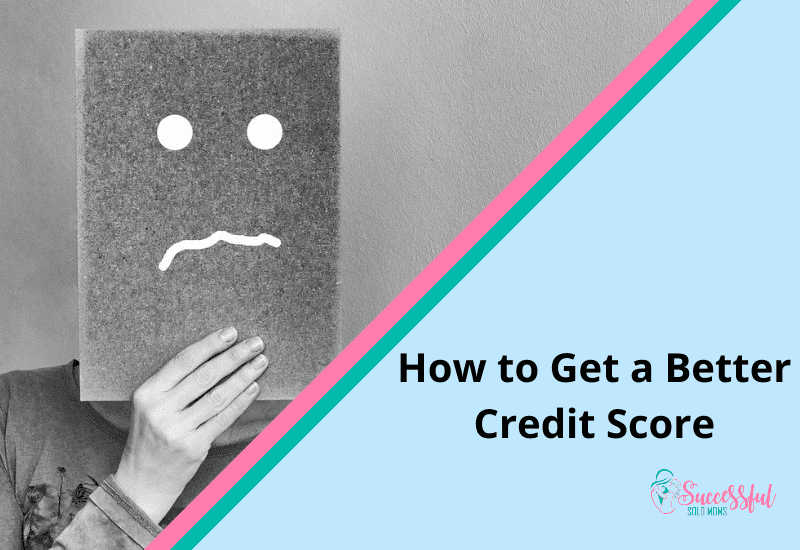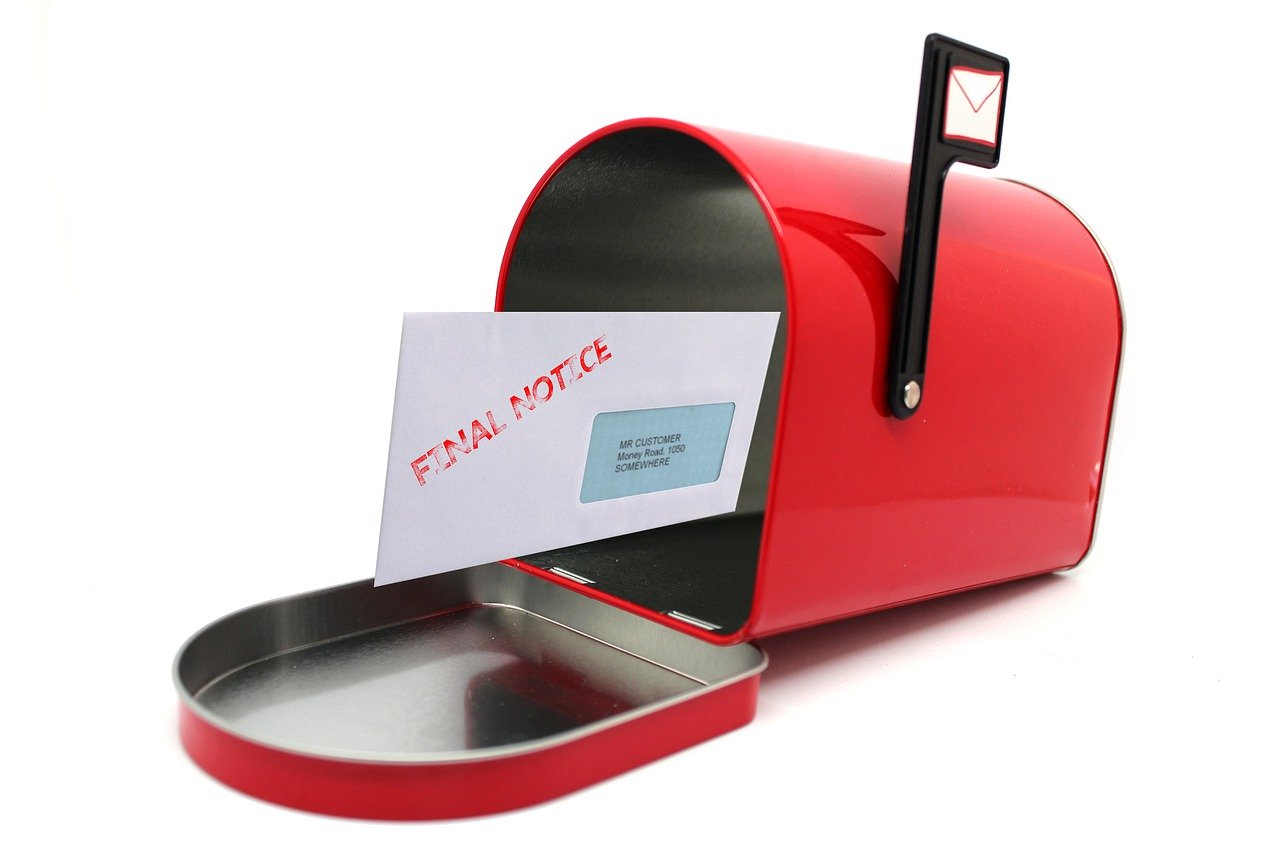
How to Get a Better Credit Score
Your credit score is, simply put, the measure of your borrowing abilities. It determines how much you can borrow and how often.
A good credit score shows that you’re good at managing your finances and almost never find yourself in a place where you’re unable to pay your bills or debts. A bad score tells creditors that you’re a risk, and they’ll be less willing to give you loans.
As a single mom, it’s crucial that you maintain a good credit score. It’s a major part of maintaining good financial health, and you need that in order to take care of your kids.
But, being a single mom myself, I know it’s easier said than done.
As a single mother, it’s easy to overlook a few things because you’re too busy dealing with others. Not all of us have mastered the art of multi-tasking, and by the time you realize you’ve left something important unattended, it could be too late.
How to Better Your Credit Score
If your credit score is more on the low side of the scale, the following tips will help you better it.
Review Your Credit Score Regularly
You can check your credit report for free once every year from each of the three credit reporting bureaus. These are TransUnion, Experian, and Equifax.
Reviewing your report not only allows you to see how you’re doing but also gives you a chance to check for errors.
Incorrect information about your payment history or credit accounts can significantly affect your score. The sooner you have them fixed, the less impact they’ll have on your borrowing capability.
Pay Your Bills on Time
Your ability to pay bills on time contribute a huge percentage to your credit score. For this reason, you need to make sure to always meet payment deadlines.
This includes making your house payments, settling your rent, credit card bills, and even insurance premiums. Making late payments or missing them can seriously hurt your credit score.
Keep Your Credit Card Balances Low
How much is your credit card limit, and how much do you spend? Both of these have a big impact on your score, almost as much as your bill payment history.
In order to ensure a good credit score, you should keep your credit card balances low. Your credit card balance is the amount that you owe your credit card company.
A low balance means that you spend a little percentage of the limit given. In short, you don’t max out your card.
Creditors prefer borrowers who maintain 30% or less balance. This is referred to as a credit utilization ratio, which is attained by dividing the amount that you spend by your card limit.
While keeping your ratio low, also ensure to pay off the balances on time. This will give the picture that you’re good at paying your debts and reflect well on your credit report.
Set Up Payment Reminders
How do you manage to remember to pay all those bills and credit card balances on time without forgetting about any of them? I do it by setting reminders.
A simple mistake, costly consequences…for my friend
A close friend of mine had missed a few payments in the past. When I asked her why, her answer was… I had completely forgotten about it.
By the time she realized that she might have missed a bill payment or two, her grace period had lapsed.
Only to find out that her credit score had gone so low that if she needed an emergency loan (god forbid) no banks would be willing to lend her due to her lower-than-usual credit score.
Needless to say, that was an eye-opening moment for her, and upon my advice, she began to get more proactive about managing her bills and debts.
She has since found out that setting up reminders helps her pay all the bills on time. Most importantly, she never forgets any of them.
This went a long way in bringing her score back up, and I 100% recommend that you markdown your payment deadlines on your calendar, or use reminder apps on your phone.
Seek Debt Relief
If you find that you can no longer afford to fulfill your monthly payments, it’s time to contact your creditors. This way, you can set up a payment plan that’s more lenient than the original one.
For instance, your creditor can significantly lower your minimum payment amount, making it possible for you to make payments on time. This’ll ensure that your score is not affected by late payments.
If your situation is direr, you can seek to have them lower your remaining balance. A debt relief company can help you get this sorted out faster and in a way that’s favorable to you.
National Debt Relief is a debt consolidation company that negotiates with creditors on behalf of debtors. They’re a team of professionals who can get your creditor to agree to settle your debt for much less than you owe.
During the negotiation payment, your payments will halt, which provides relief of its own kind. However, your credit score will suffer a blow when you seek debt settlement.
But, this is a temporary setback that will go away once you begin making consistent payments. National Debt Relief can help you settle your medical, personal, business debts, and several other loans.
They’ll also address your collections. When my friend’s medical bill went into collections (which was a huge hit on her already poor credit score), their team of certified specialists helped her find a way out.
Keep Unused Accounts Open
Don’t close any old credit accounts that you no longer use. This is because a longer borrowing history reflects well on your credit report.
If you must close some accounts, then do away with newer ones that haven’t yet contributed much to your credit history.
Get a Quick Loan
We’re talking about getting out of debts and improving your credit score, so why am I advising you to get a quick loan?
A quick loan is a small loan that you can pay off quickly without straining. It could be anywhere between $250 – $1000.
Make sure that you can easily pay off the amount that you borrow because it’s in this way that you’ll improve your credit score.
Once you get positive repayment reports for this loan, it’ll reflect well on your report and balance any negative information you may have on there.
What Factors into Your Credit Score?
Knowing what credit report companies consider when calculating your credit score can help you stay on top of your game. Here are the five things used to make your score:
Payment History
When checking your payment history, they’ll consider the following:
- Do you settle your full balances?
- Do you pay on time?
- Do you meet the minimum required payment amounts?
- Has any of your accounts been sent to collections?
- How frequently do you miss payments?
Most times, your payment history will make up about 35% of your credit score. So make sure that you fulfill all the payment requirements for a great score.
Debts Owed (E.g., Credit Card Balances)
This has to do with your credit utilization ratio, and how much of the allowed credit you use. Always spend below 30% of the allowed limit to get positive feedback on your report.
Usually, this accounts for about 30% of your score. As you can see, creditors are very interested in how much you spend and how you pay it back.
Duration of Credit History
If you have been using credit for a long time while fulfilling payments, it reflects extremely well on your score.
The longer you’ve been borrowing while maintaining good payment habits, the less risk-free creditors consider you.
Credit Mix
Have you taken different types of loans? You should, because it’s good for your score. It’s however, not very critical like other factors since it only affects 10% of your credit score.
The different types of loans you can take for a good mix include mortgages, car loans, and credit card loans. While having more credit accounts can be beneficial, it’s more important to avoid taking more debts than you can handle.
New Credit
When was the last time you opened a new account, or how frequently do you apply for one? Regularly opening new credit accounts will reflect well on your credit report.
But, make sure that you don’t open all these new accounts within a short period of time, as that my peg you as a risky borrower.
Benefits of a Good Credit Score
With a good credit score, you’ll enjoy the following benefits:
- Your bank and credit card companies will be willing to lend you more money and with higher limits. (Because of my poor score, I was not able to qualify for the full amount that I needed to pay my medical bill. Don’t be caught unawares like me!)
- You’ll have a better chance of getting approved for loans because a good score means you’re a safe borrower.
- When borrowing, you’ll qualify for low-interest rates. This means you’ll pay less and be able to clear any debts faster.
- The same applies to your insurance premiums. With a good credit score, you’ll be able to negotiate low premiums.
If you’re super busy (which seems to be our default setting as single moms) and may not be able to keep up with all that’s required to ensure a good credit score, don’t panic. You can always get a credit repair company to sort things out for you, especially when your score is going downhill.
Get help to identify the accounts that are affecting your report negatively and how you can change that. You can also access personalized advice about how to manage your credits for a better score.
When push comes to shove, they’ll also represent your case to the credit report bureaus to solve any errors.
Conclusion
Getting a better credit score requires you to fulfill your payment requirements, watch your credit card balances, and open new accounts that you can afford.
The better your score, the more borrowing power you have. This can take you a long way as a single mother, and ensure that you never find yourself stranded with a financial emergency!
And if it’s all so overwhelming for you, you can always seek professional help from debt relief and credit repair companies.









